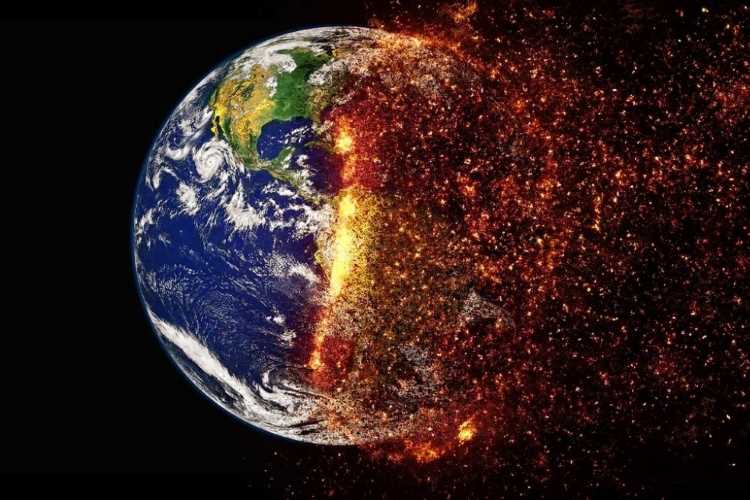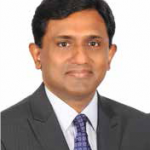
India is chairing the UN Security Council at a historic juncture. The world is struggling against the Covid-19 pandemic and the economic crisis triggered by it. The pandemic has already claimed four million lives so far, while another 140 million were infected by the deadly coronavirus.
The most important message emerging from the crisis is that global health is the new shape of world peace. Any discussion about global engagement today needs to understand and acknowledge the complexity of the causes, the consequences, and outcome of the Covid-19 pandemic. The global response to Covid-19 calls for a transformative leadership of health systems across the world.
Building upon its contribution to global health, India should take an active role in mobilising global leadership for equitable access to vaccines and diagnostics for Covid-19 response as well as on terrorism, peace and UN Security Council reforms. India may also expand its global engagement into additional non-traditional issues. Considering India’s significant contribution to global health, India must consider addressing the global challenge of Covid-19 at the UN Security Council as well. Though it is symbolic, India’s role as the UN Security Council chair is an opportunity to further its national interest.
In the context of the ongoing global response to the Covid-19 pandemic, the UN secretary-general has called for an urgent and immediate global ceasefire. India may support this call from the secretary-general and expand its scope. Each of the members holds the Security Council presidency in turns of one month, following the English alphabetical order of the names.
READ I Security Council presidency an opportunity to showcase India’s leadership credentials
An agenda for Security Council presidency
The primary function of the Security Council is to maintain international peace and security. However, the report card of the UNSC since it held its first session on January 17 1946 in London is mixed. Previously, India was elected as a non-permanent member of the UNSC in 1950, 1967, 1972, 1977, 1984, 1991 and 2011.
In June, external affairs minister S Jaishankar had made it clear that India’s focus at the Council would be counter-terrorism. Foreign secretary Harsh Vardhan Shringla expanded the agenda in a statement at the UN Security Council Open Debate on Children and Armed Conflict on June 28, 2021.
The enduring lesson from the Covid-19 pandemic is that health security is a critical ingredient of global peace. Nations’ wealth and military might are no guarantee to the health security of the people.
Each month the UN Secretariat prepares a provisional programme of work for the Security Council. The members discuss this document informally, initially in bilateral discussions and with the new president for the month. The presidency then, after making any adjustment, puts the document before the members in informal consultations. This is not Security Council agenda in the formal sense. It remains provisional and is simply a framework for scheduling formal and informal discussions.
READ I Fruit exports: Can largest producer India storm the global market
Focus on maritime security
India has chosen to convene two signature events during its presidency. On August 9, a major open debate on maritime security was held. Three days earlier a discussion was held on the recent incident in the Gulf of Oman, a drone attack on the MV Mercer Street in which two crew members were killed. India is also planning to hold a ministerial-level open debate on technology and peacekeeping. The Council will also hold its monthly meetings on the political and humanitarian situations and chemical weapons in Syria.
African and Asian issues are also expected to be addressed by the Security Council chaired by India. A meeting on the UN Assistance Mission in Somalia (UNSOM) and the revival of the Mali asset freeze and travel ban sanctions, as well as consideration of the Secretary-General’s July 15 report with recommendations on the force level of the UN Multidimensional Integrated Stabilization Mission in Mali.
The quarterly briefing by the chair of the 1718 DPRK Sanctions Committee is also anticipated in August. In addition, the Council will continue to follow developments in Ethiopia (Tigray), Haiti and Myanmar closely during the month. Meetings on these and other issues are possible.
Though Afghanistan was not prominently on the programme of work, India is hosting a briefing and closed consultation on the deteriorating security situation of Afghanistan. Estonia and Norway requested the meeting to discuss recent developments in Afghanistan, including an escalating Taliban military offensive.
India has signed a memorandum of understanding on collaboration in health (Including the promotion of Indian systems of medicine) with more than 80 countries. India has a strategic advantage to call for a global effort for Covid-19 vaccine equity. It may expand and consolidate its preliminary steps in the area of health diplomacy by doing so.
The objectives of India’s MoU are to build on the health research relationship in the topics of joint research, elimination of infectious diseases, development of network platform of emerging and viral infections, capacity-building in research methodology management, clinical trials, ethics, and harmonisation of regulatory mechanisms. India also has taken leadership to provide vaccines to several developing countries.
(Prof Joe Thomas is Professor of Public Health, Institute of Health and Management, Victoria, Australia. Opinions are personal.)
Dr Joe Thomas is Global Public Health Chair at Sustainable Policy Solutions Foundation, a policy think tank based in New Delhi. He is also Professor of Public Health at Institute of Health and Management, Victoria, Australia. Opinions expressed in this article are personal.

